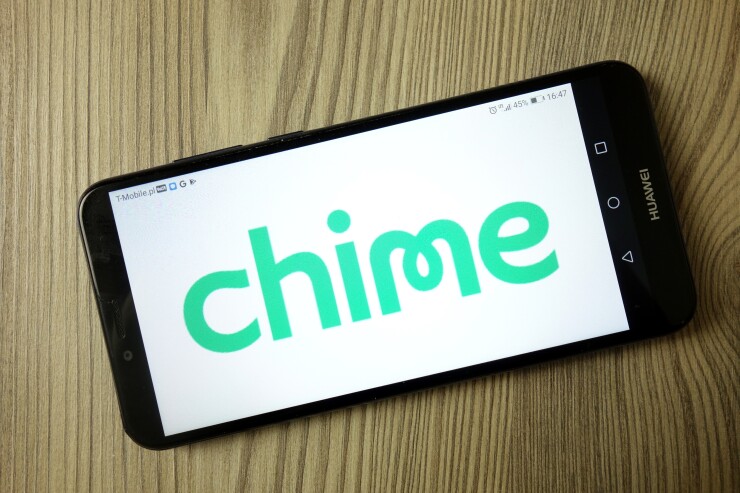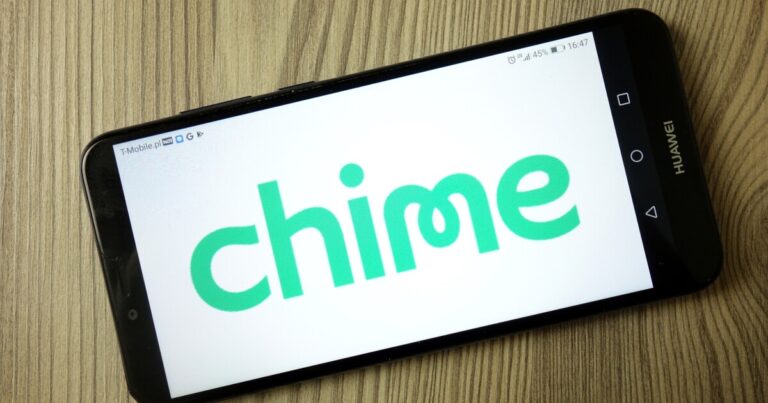
If Chime goes public next year, the neobank could become even bigger – but it would have to be transparent about its finances and would likely have to rein in operating costs, including spending less on marketing.
The chime is
If that happens, the deal would give a large neobank the opportunity to become even bigger. Chime now has more than 38 million customers, according to
“I think a Chime IPO would be significant because it would significantly increase the capital Chime has to grow and invest in,” said Aaron McPherson, principal at AFM Consulting. “It would also be a form of validation of the digital banking model.”
The IPO would also open the company’s books to everyone and likely force the company to cut expenses.
Chime’s Journey
Chime was founded in San Francisco in 2012, shortly after the financial crisis. She officially launched her account and debit card in 2014 during a segment on “Dr. Phil,” with the message of offering low-cost products and helping people avoid bank fees. .
The company’s user-friendly features have proven popular among millennials and Gen Z as well as those who live paycheck to paycheck, as 66.2% of Americans said they do in a survey MarketWatch conducted in August (48.6% of Americans consider themselves “broken”). Customers who directly deposit their paychecks into a Chime account can access it up to two days early. Chime’s SpotMe allows members to overdraft up to $200 with no overdraft fees. In May, Chime launched a payroll access product called MyPay that allows consumers to receive up to $500 of their paycheck before payday. Chime also offers Credit Builder, a secured credit card with no upfront fees.
“They have demonstrated a level of customer centricity that has earned them praise from consumers,” said Jim Perry, senior strategist at Market Insights. “And their digital-only product offerings, like no-fee banking, early access to direct deposits, and early access to payroll, have already disrupted the industry and made it a significant competitor, especially for younger consumers low to moderate income. capital could support new innovations or improvements that would intensify competition between digital and traditional banks.
Chime executives pride themselves on the fact that the company’s business model is based on interchange fees, not so-called “nuisance fees” like overdraft penalties. It also charges fees for its small, short-term loans.
The company struggled. A 2021
But it was also flooded with venture capital. Chime has raised a total of $2.3 billion in 11 rounds.
The increased transparency mandated by the IPO would make Chime’s business model more transparent, making it easier to see how the company is generating profits, McPherson said.
The IPO will also bring increased scrutiny of Chime’s spending, including its marketing budget.
“However, it would also build confidence, which would lead to greater growth,” McPherson said. “Being publicly traded increases perceived legitimacy.”
Impact on the fintech market
It has become unusual for unicorns to go public these days, with many choosing to stay private longer because of greater access to private capital and the ability for founders to maintain control, McPherson said.
“Depending on how the IPO goes, it could encourage other fintechs to follow suit,” he said.
Peter Renton, founder of Lend Academy and Fintech Nexus, who now has an independent consultancy, said the IPO would affect the entire fintech sector.
“The public markets have not been kind to many fintech companies, and to maintain their valuations in the private markets, they will need to execute flawlessly,” he said. “One thing I am sure of is that the entire fintech space will be watching this IPO very closely and wish them good luck. A successful Chime IPO could usher in a new wave of IPOs in stock market in fintech.”

